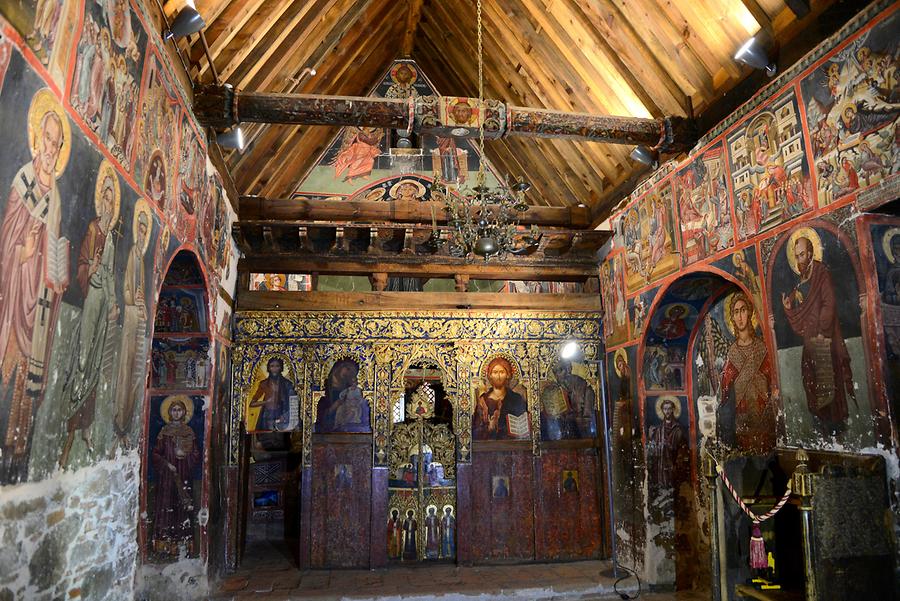Stavros tou Agiasmati - Nave; Frescoes#

Stavros tou Agiasmati - Nave; Frescoes, September 2016, © Gerhard Huber, under CC BY-NC 4.0 +Edu
The Byzantine emperor, worshipped as the Vicar of Christ on earth, acted as the supreme secular head of the church. Therefore, ecclesiastical art should also entrench the irrevocable order of the Byzantine state and its social system. Jesus, as the sole ruler in the dome with the angels as his adjutants, also reflected the state hierarchy with the emperor on top. With the aid of religion this 'program' was carried to the most remote corners of the empire and so to speak 'burnt' into the minds of men. Today, one must acknowledge without envy: this was perfect marketing and brainwashing at its best, even if it was not a new invention: in almost all high cultures around the world rulers always knew how to legitimate their power divinely. The close connection between the state and religion is an excellent way to bind together large groups of people, manipulate them and justify all the deeds of their rulers. Dictators and supreme representatives of a faith have always had an important ally - fear - in common and a great enemy: the doubt.
Als oberster weltlicher Kirchenherr fungierte der byzantinische Kaiser, der sich als Verwalter Gottes auf Erden verehren ließ. Kirchliche Kunst sollte damit auch die unumstößliche Ordnung des byzantinischen Staats- und Gesellschaftssystems zementieren. Jesus als Alleinherrscher in der Kuppel mit den Engeln als Adjutanten spiegelte zugleich die staatliche Hierarchie mit dem Kaiser an der Spitze wider. Dieses „Programm“ wurde über die Religion bis in die entlegendsten Winkel des Reiches getragen und in die Köpfe der Menschen gleichsam eingebrannt. Heute muss man neidlos anerkennen: das war perfektes Marketing und Gehirnwäsche vom Allerfeinsten, auch wenn es sich um keine neue Erfindung handelte: Schon immer verstanden es Herrscher in fast allen Hochkulturen rund um die Welt, ihre Macht göttlich zu legitimieren. Die enge Verbindung von Staat und Religion eignet sich hervorragend, um große Gruppen von Menschen zusammenzuschweißen, zu manipulieren und alle Taten der Herrschenden zu rechtfertigen. Diktatoren und oberste Vertreter eines Glaubens haben schon seit jeher einen großen gemeinsamen Verbündeten, die Angst, und einen großen gemeinsamen Feind: den Zweifel.